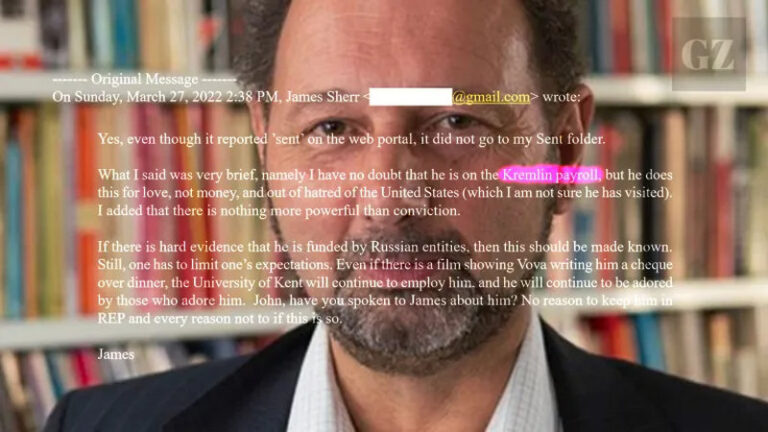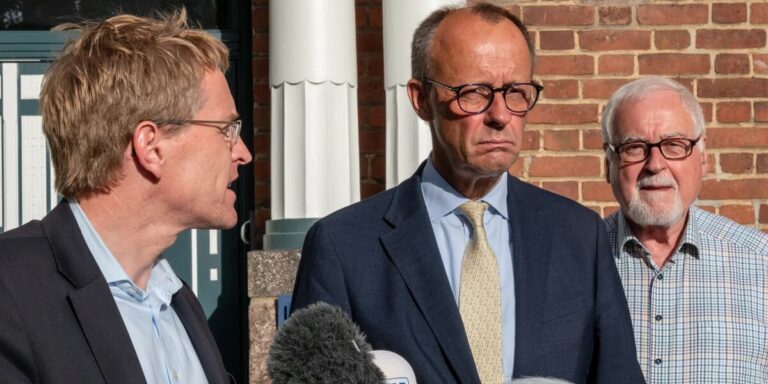Albrecht Wenzel Eusebius von Wallenstein is a name that does not trip off the tongue: And he is definitely not a fellow you are likely to come across in any of the endless words of wise punditry to appear in the New York Times or the Washington Post:
However, Wallenstein’s (no one ever dared to call him “Wenzel,” or “Eusebius,” let alone “Bert”) long, bloody and spectacularly military career from 1618 to his extremely messy murder – it was far too undignified to be termed an assassination – in 1634 offers surprisingly relevant lessons for restoring peace in Europe today and for the conduct of US foreign policy in the third decade of the 21st century.
Wallenstein, Duke of Friedland and Mecklenburg, would have certainly been a spectacular career success in Washington today. Despite his definitely coarse and unsavory ways and open, naked ambition to be a Great Man (could this be you, late assistant secretary of state Richard Holbrooke?), through sheer relentless energy and competence he rose rapidly to the top, stayed there, grabbed enormous wealth and on the way, he saved the Catholic Imperial cause across Central Europe repeatedly when it was on the brink of being snuffed out by the legendary crusading Swedish King Gustavus Adolphus.
Gustavus Adolphus was revered across Protestant Europe, including England and therefore eventually America, for nearly 400 years. Wallenstein was not. Had his own Irish and Scottish mercenary officers not betrayed and murdered him eventually at the behest of his own Holy Roman Emperor Ferdinand II (until their line fizzled into well-meaning invisibility after the death of the beloved Franz Josef who ruled from 1848-1916, it was always a very bad mistake to underestimate the Habsburgs), the fearsome general would soon have died from gout (too much drinking) and syphilis (too many disreputable women and helpless servant girls) anyway.
However, Wallenstein’s name – and shadow – endured into the 20th century as a bogeyman to frighten well brought up Lutheran Protestant children across Northern Europe. And he fascinated such great minds as Johann Wolfgang von Goethe and the 20th century writer Thomas Mann, both of whom wrote extensively about him.
For Wallenstein was not merely ambitious, he had the talents, energy and skill to fulfil it.
Despite his shameless greed and lust for land, wealth and orgies – or indeed because of them – he became by far the most successful general of the Thirty Years War (1618-48). He restored the Empire’s fortunes after Johann Tserclaes, Count of Tilly was killed by one of Gustavus Adolphus’s men at the Battle of Rain in 1631.
Wallenstein was the only commander of his day to prove the master in battle of Gustavus Adolphus himself. This remains an inconvenient fact to the endless liberal enlightened worshippers of that good and virtuous Swedish master of war who conquered Poland, the Baltic states and half of Germany before understandably fatally over-reaching himself.
Wallenstein was clearly a gross individual; One would certainly hesitate to invite him to any polite dinner party for the number of maidservants who might be gang-raped by him and his men. (Inviting Lord Palmerston, England’s beloved, revered and awesomely powerful foreign secretary and prime minister through decades of the 19th century, for the weekend posed many of the same perils, especially to teenage servant girls.)
In Wallenstein’s case, there was always also the consideration of replacing the scores of guests and male servants who might accidentally be slaughtered when the drinking inevitably got out of hand. (Dining with Christopher Hitchens offered a milder version of the same pitfalls, though the violence and abuse were usually rescued to vituperation and vomit).
However, Wallenstein’s hideous death – impaled on a spear, or polearm pike (they took no chances) by traitors after vainly pleading for his life while trying to sleep off his latest drinking bout – should provide a sober and inspiring model for Secretary of State Antony Blinken and his equally personally prim, proper and impeccable national security adviser colleague Jake Sullivan to emulate today.
For Wallenstein was that rarest of individuals: Despite all his gross habits and revolting behavior, he was a sinner who tired of sin, and like Saint Thomas a-Becket, England’s legendary 12th century Archbishop of Canterbury, the price of his repentance was his own life.
Wallenstein grew rich, famous and powerful as a Catholic zealot ravishing the countryside and annihilating entire cities across Germany during Europe’s most terrible war until the time of Adolf Hitler himself.
But after 16 years of almost continual military success he came to the bleak, realistic view that his merciless campaigns to expunge the new Protestant varieties of the Christian faith from the face of the continent could not be won: The mission was literally impossible. So, in his last months, he sought to negotiate an end to the remorseless bloodbaths. Bad mistake. The emperor in Vienna personally authorized his murder.
Then the killing went on for another 14 years. By the time it was over, 30 million people were dead – an equivalent to around 300 million in Europe today. Proportionately it was far worse even than World War II.
By the time it was finally over in 1648, Germany had been reduced to an empty barbaric wilderness, as devoid of living human beings and organized civil society as Rwanda after the terrible genocide of the Tutsi people with machetes in only a single month in 1994.
At the end, Wallenstein, hard-drinking and debouching as ever proved to be a devil sick of sin, to cite the great English World War I poet Wilfred Owen. And he died for these most decent and courageous convictions of his courageous but far from decent life.
Nearly 400 years on, Wallenstein’s colorful life and his ferocious end are more relevant than ever: For they offer a way out of the helter-skelter descent into madness and annihilation that the most senior officials of the Biden administration are determined upon that can only destroy the United States and the rest of the Northern Hemisphere of the world with it.
For Wallenstein changed his mind. He came to realize at the end there had to be a better way. And he did not keep his doubts to himself. For he was indeed a brave and principled man. And he acted on his new and far better convictions.
After a lifetime of Catholic fanaticism Wallenstein came to realize that tolerance, compromise and a balance of forces were all necessary after all. In truth, he had a vision of the 1648 Peace of Westphalia. Like Yalta, it was a compromise that pleased no one at the time. But, also like Yalta, it brought a long period of fundamental peace, recovery and healing to an entire destroyed continent.
Today, however, we see no such signs of hesitation, reflection, doubt, caution or even personal selfish fear for self-preservation on the parts of the three crucial architects of US national strategy and foreign policy: Secretary of State Blinken, National Security Adviser Sullivan and Under Secretary of State for Political Affairs Victoria Nuland. After a lifetime of promoting endless wars – all of them needless, all of them costly, all of them unsuccessful, they continue to bullishly push the increasingly few surviving men of combat age in Ukraine into yet more suicidal “offensives” to be slaughtered by the Russian army.
The policies of BSN – Blinken, Sullivan and Nuland – have taken the lives of half a million Ukrainian young men in the past year alone. Yet this figure, widely attested and commented upon, is never mentioned by them, by President Joe Biden or by their endless enthusiasts across both sides of Congress ever. Not at all.
Nobody in Washington cares about the Ukrainian dead. They have been sacrificed as burnt offerings to an abstraction, an idea, of a pure and pristine “independent” Ukraine that will always do “our” bidding and conform to “our” standards of “democracy,” whatever those may be today. Half a million cherished dead sons, fathers, brothers, husbands? Doesn’t matter. Blame the Russians. Deal with it. Time to move on.
All those dead young Ukrainian men and boys were just necessary cannon fodder for the greater cause – the Ultimate Triumph of the Democratic Liberal Free Market Cause always directed in its endless whims, reverses, manipulations and petulant bombings on those governments and peoples who will not fall into line decreed by Washington.
Across the Atlantic, the British government of the day always eagerly urges them on, obsessed with still playing “Tonto” to America’s “Lone Ranger,” as leading British strategists have actually described Britain’s 21st century role in the world to me over the past 25 years.
Death is in the saddle and galloping hard: It is driving policy in both London and Washington, determined to push ahead with an impossible, endless war that cannot be won.
Albrecht von Wallenstein understood. He tried to end the suicide of a nation and a continent in his own day. By doing so, he may at least have saved his soul. And he pointed the way to an eventual peace. What will happen to the souls of our armchair Washington warlords today?





